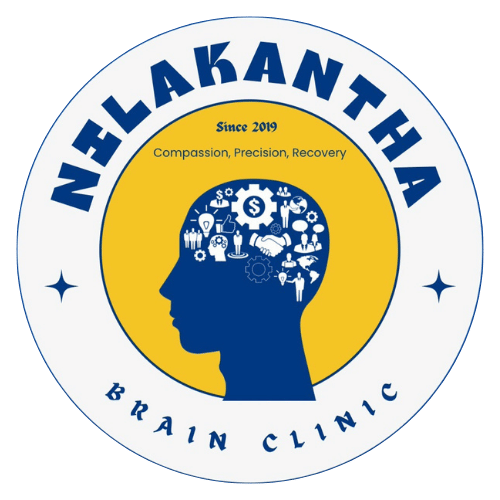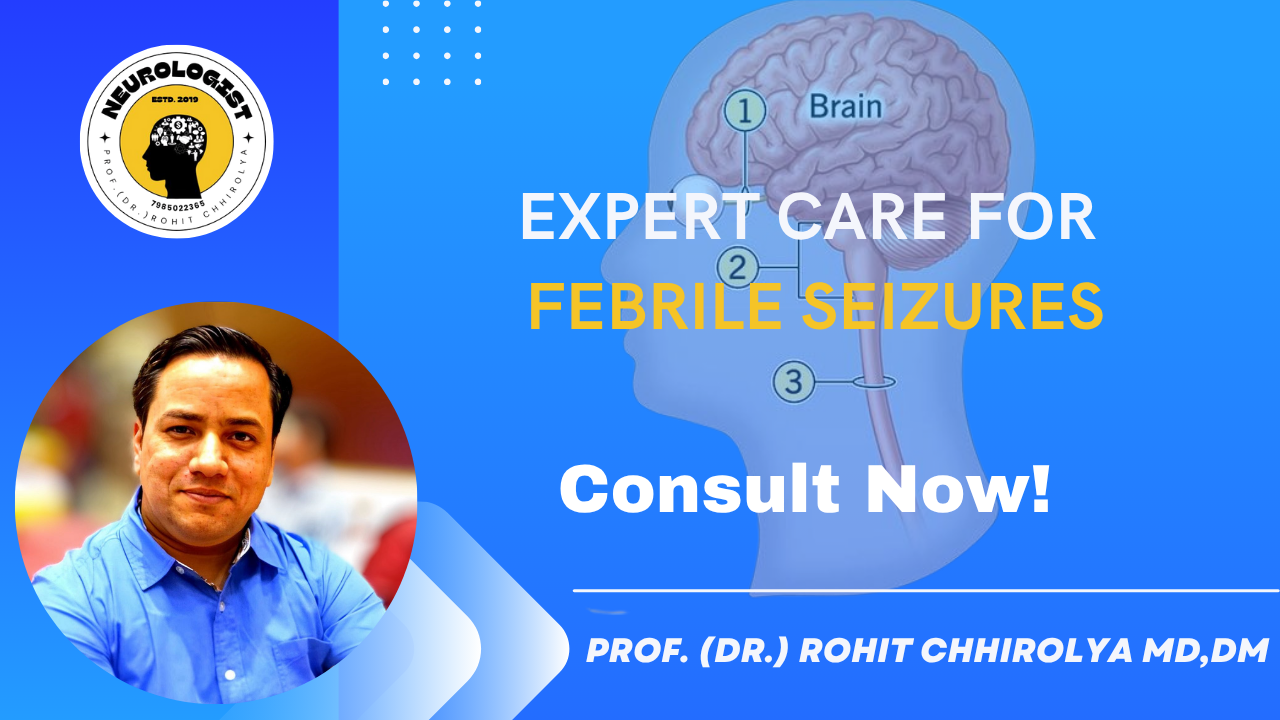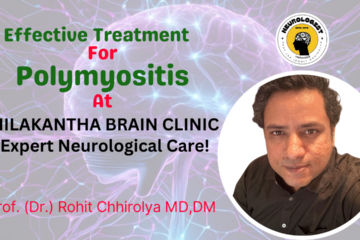Table of Contents
- What Are Febrile Seizures?
- Symptoms & Types of Febrile Seizures
- Causes & Risk Factors
- Diagnosis: When to Worry?
- Treatment & Immediate Care
- When to Consult a Neurologist
- Why Choose Nilakantha Brain Clinic?
- Preventing Recurrence
- FAQs: Addressing Parental Concerns
- Parent Success Stories
- Schedule a Consultation
1. What Are Febrile Seizures?
Febrile seizures are convulsions triggered by a sudden spike in body temperature (usually >100.4°F/38°C) in children aged 6 months to 5 years. They affect 2–5% of children globally and are classified into two types:
- Simple Febrile Seizures:
- Last <15 minutes.
- Involve full-body shaking.
- Do not recur within 24 hours.
- Complex Febrile Seizures:
- Last >15 minutes.
- Affect one side of the body (focal seizures).
- Recur within 24 hours.
While alarming, these seizures are generally harmless and rarely linked to epilepsy. However, consulting the best neurologist in Cuttack ensures underlying conditions like meningitis are ruled out.
2. Symptoms & Types of Febrile Seizures
Common Symptoms
- Convulsions: Rhythmic jerking or stiffening of limbs.
- Loss of Consciousness: Child may stare blankly or become unresponsive.
- Fever: Often caused by infections (e.g., flu, ear infections).
- Post-Ictal Drowsiness: Deep sleep post-seizure.
Red Flags (Complex Febrile Seizures)
- Prolonged Duration: >5 minutes.
- Focal Features: Twitching one arm/leg.
- Recurrence: Multiple episodes in 24 hours.
If these signs appear, seek a neurology doctor in Cuttack immediately.
3. Causes & Risk Factors
Common Triggers
- Viral Infections: Influenza, roseola, or adenovirus.
- Bacterial Infections: Urinary tract infections (UTIs) or otitis media.
- Post-Vaccination Fever: Rarely linked to MMR or DTaP vaccines.
Risk Factors
- Family History: 20–30% of children have a parent/sibling with febrile seizures.
- Age: Highest incidence between 12–18 months.
- Developmental Delays: Children with cerebral palsy or neurodevelopmental disorders.
4. Diagnosis: When to Worry?
Diagnosis involves:
- Medical History: Details of fever source, seizure duration, and family history.
- Physical Exam: Checks for signs of meningitis (stiff neck, rash).
- Tests (If Needed):
- Lumbar Puncture: Rules out meningitis in infants <12 months.
- EEG: Recommended only for atypical or recurrent seizures.
- Blood Tests: Identify infections or electrolyte imbalances.
At Nilakantha Brain Clinic, the best neurology specialist in Cuttack uses advanced tools like video EEG to differentiate febrile seizures from epilepsy.
5. Treatment & Immediate Care For Febrile Seizures
At-Home Management
- Stay Calm: Place the child on their side to prevent choking.
- Cool the Body: Use lukewarm sponging (avoid ice baths).
- Medications: Acetaminophen (15 mg/kg) or ibuprofen (10 mg/kg).
Emergency Care
- Rescue Medications: Rectal diazepam for seizures >5 minutes.
- Hospitalization: Required for complex seizures or suspected meningitis.
For tailored advice, consult the best neurologist doctor in Cuttack.
6. When to Consult a Neurologist
Seek expert care if your child:
- Has their first febrile seizure.
- Experiences prolonged or recurrent seizures.
- Shows developmental regression post-seizure.
Check the Cuttack neurology doctor list or search for a neuro doctor in Cuttack like Dr. Rohit Chhirolya for specialized evaluation.
7. Why Choose Nilakantha Brain Clinic?
- Pediatric Neurology Expertise: Dr. Rohit Chhirolya, a DM Neurologist with 15+ years’ experience.
- Advanced Diagnostics: MRI, EEG, and genetic testing under one roof.
- Parent Education: Workshops on seizure first aid and fever management.
Awards:
- Voted “Top Neurologist in Cuttack” by Healthcare Asia (2023).
Follow Dr. Chhirolya:
8. Preventing Recurrence
- Fever Management: Administer antipyretics at the first sign of illness.
- Hydration: Offer oral rehydration solutions (ORS) during infections.
- Avoid Triggers: Dress children in light clothing during fevers.
Recurrence Rate: 30% of children experience repeat episodes, decreasing after age 3.
9. FAQs:
Addressing Parental Concerns Related to Febrile Seizures
Q1. Can febrile seizures cause brain damage?
A: No. Most children recover fully with no long-term effects.
Q2. Will my child develop epilepsy?
A: Risk is 2–5% (vs. 1% in general population).
Q3. Are febrile seizures hereditary?
A: Yes. Family history increases risk by 20–30%.
Q4. Should I rush to the ER during a seizure?
A: Only if it lasts >5 minutes or is the first episode.
10. Parent Success Stories
Case 1:
Mrs. Patnaik, Cuttack: “Dr. Chhirolya’s guidance helped us manage our son’s recurrent seizures. Truly the best neurologist near me!”
Case 2:
Mr. Das, Bhubaneswar: “Nilakantha’s EEG testing ruled out epilepsy, giving us peace of mind.”
11. Schedule a Consultation
Don’t let fear override caution. Trust Dr. Rohit Chhirolya, the top neurologist in Cuttack, for expert care.
Call: 7985022365
Visit: Nilakantha Brain Clinic




